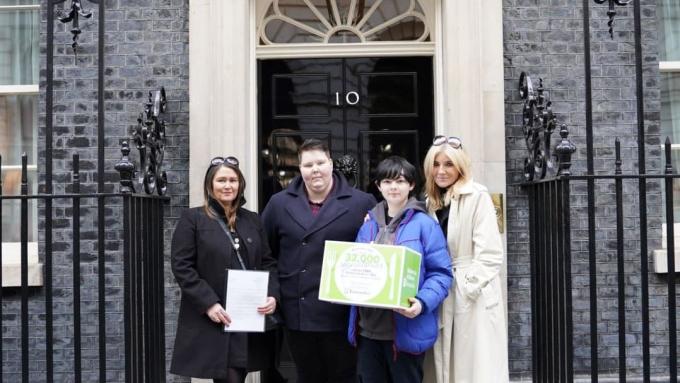Fostering Hope outlines what high quality specialist care for unaccompanied asylum-seeking children (UASC) should look like.
The report draws on our decades of experience working directly with children seeking sanctuary in the UK, their voices and those of the adults who care for them. It also highlights what needs to be done to ensure children are placed in a loving home as quickly as possible following their arrival in the UK.
All children need a safe and loving home; somewhere to thrive and enjoy their childhood. Sadly, for too many children arriving in the UK without a parent or carer, this basic need is not being met.
From April 2023 to March 2024, there were 69,298 asylum applications made in the UK. Of these, 5% (3,285) came from unaccompanied asylum-seeking children under the age of 18 (gov.uk, Education statistics, 2023).
Many of these children will have experienced substantial trauma and adversity in their home countries and during their journey to the UK. These children have often travelled alone and have no friends or family to reach out to when they arrive.
All unaccompanied children must be taken into care when they arrive in the UK. As with all children in care, they must have their needs assessed, and be provided with somewhere to live that will meet their needs.
A Warm Welcome
Our report, A Warm Welcome, published in 2023 and supported by Action for Children, British Future, Coram Legal Centre, ECPAT UK, NSPCC, Refugee Council, Save the Children, The Children's Society, and others, outlined the need for a strategic plan for welcoming all refugee children and children seeking asylum, to give them the best possible start to life. This should include investment in sufficient care placements to meet the specific needs of this unique group of children. In particular, the next Government must commit to developing a network of specialist provision across the country. This should include investment in both specialist foster care and high-quality supported accommodation.
We are one of the largest voluntary foster care providers in the UK and offer a range of supported accommodation for children in care. This report draws on our decades of experience working directly with unaccompanied asylum-seeking children. Through the voices of those children and the adults who care for them, the report outlines a “blueprint” for what high quality specialist care looks like. We also highlight the steps that are needed to ensure children move smoothly through the National Transfer System and into a loving home as quickly as possible following their arrival in the UK.
Our recommendations to the next UK Government
-
Develop a strategic plan that protects and welcomes children who have fled their homes to seek sanctuary in the UK. This should include an adequately funded system for both specialist fostering and supported accommodation.
-
The National Fostering Recruitment Campaign should contain a specific target for recruiting foster carers who specialise in the care of displaced children. This should include targeted, bespoke campaigns as well as the establishment of a national register of foster carers who are trained in caring for unaccompanied asylum-seeking children so it is clear where specialist care is available.
-
Assign all unaccompanied children seeking asylum with a Guardian when they arrive to the UK, this would provide children with much needed extra support and as they move through the National Transfer Scheme (NTS) and integrate into their new community.
-
All children must have their needs assessed to ensure the type of accommodation they are placed in is appropriate and in their best interests. Specifically, where a child is 16 or 17 years old, their needs must be established in a local authority care setting (specialist foster care or residential children’s home) before determining whether they would benefit from living in supported accommodation.
-
Welcome packs should be provided as standard in all supported accommodation settings to ensure that unaccompanied children have the resources they need at the start of their placement to enable them to settle and thrive.
-
When moving children through the NTS, information passed between local authorities must be as detailed as possible, to ensure that children’s needs can be fully assessed. Similarly, children need to be provided with clear and comprehensive information about where they are being moved to.

We bring about change to make children's lives better
We call for improvements to the law, policy, and professional practice informed by the experiences of the children and young people we support and our own evidence-based research. We share this with decision-makers and others working to help change children’s lives and the systems around them for the better.

A warm welcome
Our Warm Welcome report contains five ways that displaced children seeking protection in the UK could be supported. You can also watch a video featuring young people who have been supported by Barnardo’s while seeking sanctuary in the UK.

Interested in learning more about fostering a child seeking sanctuary in the UK?
Find out about who can foster a child seeking sanctuary in the UK, how we support these children and the adults who care for them, and how you could become a foster carer.

